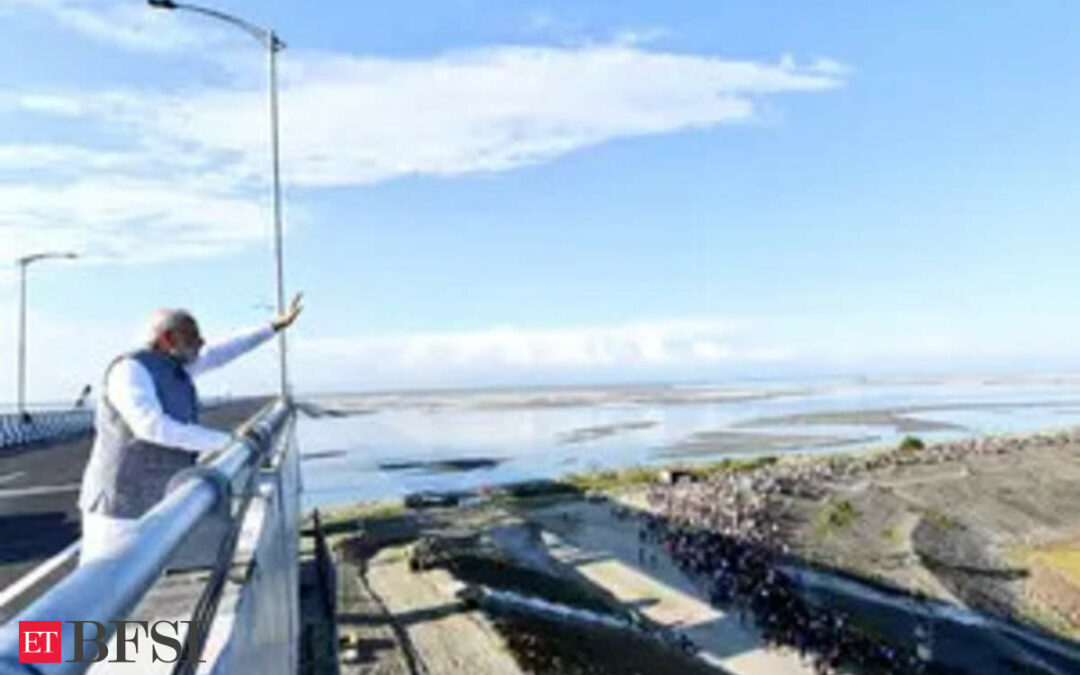New Delhi, Dec 4 (IANS) Lauding the strength of India’s growing economy under the leadership of Prime Minister Narendra Modi, Oxford University Professor Soumitra Dutta said on Wednesday that a lot of forces are siding with India in its unprecedented journey towards being a Viksit Bharat that envisions becoming a developed nation by 2047 – the country’s centennial year of independence.
“India is at a very, very historic sweet spot in its development. A lot of geopolitical forces are in its favour, a lot of technology forces are in its favour and a lot of leadership forces exemplify Prime Minister Modi’s direction on leadership. They are in favour of development inside the country too. So my own belief is that India is well-positioned on this arc of development, the road of development,” Dutta, currently the Dean at Oxford University’s Said Business School (SBS), told IANS in an exclusive interview.
Having researched and worked extensively with several governments on global technology and innovation indices, Dutta recently co-authored a study titled, ‘From Gridlock to Growth – How Leadership Enables India’s PRAGATI Ecosystem to power progress’ that details how India has transformed the development of its large-scale infrastructure projects and social sector programmes under PM Modi’s leadership over the last 10 years.
Since its inception in 2015, PRAGATI – an acronym for Pro-Active Governance and Timely Implementation – has been a catalyst in transforming India’s infrastructure and social sector development that Dutta believes symbolises India’s commitment to overcoming bureaucratic inertia and fostering a Team India mindset along with a culture of accountability and efficiency.
“India is seen as a land of investment, of opportunity and a major player on the global stage. It’s very important as India is seen as a valid contributor to the growth of the entire world. India has contributed to the actual development of even others, including the global South. Pragati ecosystem has useful lessons for the leaders of Global South – in large parts of Africa, Latin America and Asia – that also need huge investments in infrastructure and large, wide, systemwide changes. They also need to learn how to do these projects better, faster, more effectively and more efficiently. The Pragati ecosystem shows them a pathway of doing so,” he said.Progress, maintains the distinguished alumnus from the Indian Institute of Technology in Delhi, is already in motion as India, under PM Modi, has set specific targets, including achieving a $30 trillion economy by 2047, ensuring 100 per cent literacy, complete healthcare coverage and positioning the country as a global hub for research and innovation.
“Collecting and sharing data about large scale projects is not necessarily new. But, doing it at the scale of India’s complexity and size is phenomenally great. What you do not see in other countries is sustained commitment of the top leader to actually get all the details of project execution. But here, in the Pragati ecosystem, Prime Minister Modi has consistently been focusing on the large, difficult projects and trying to unblock them. That is quite remarkable and the fact that he has done it so consistently over so many years has now created a culture in which people are seeing that, well, this is something that has his attention,” remarks Dutta.
The Pragati platform was inspired by a related system that PM Modi created in 2001 – the State-Wide Attention on Grievances by Application of Technology, or SWAGAT – while serving as Gujarat Chief Minister. Over the years, Prime Minister’s hands-on involvement remains a key feature of the platform and an essential component of its success.
Dutta cites the example of the Bogibeel bridge in Assam that spans River Brahmaputra between Dibrugarh and Dhemaji districts of Assam and is of immense economic and strategic significance for the region and nation.
“Large infrastructure projects traditionally have problems in terms of time and budget overruns. However, the Pragati ecosystem has successfully helped unblock some of the major projects which were lying blocked for a long time. For example, the Brahmaputra River in Assam had long been considered one of the unbridgeable rivers and the project to build a bridge with the road and rail link was first approved in 2002. Till 2012, almost nothing actually happened and the whole development of the region was stalled. Then in 2015, after PM Modi reviewed the project through Pragati, things finally started moving. The fact that attention was paid to the project execution from the top of the country really helped in its completion by 2018,” said Dutta.
–IANS
as/











